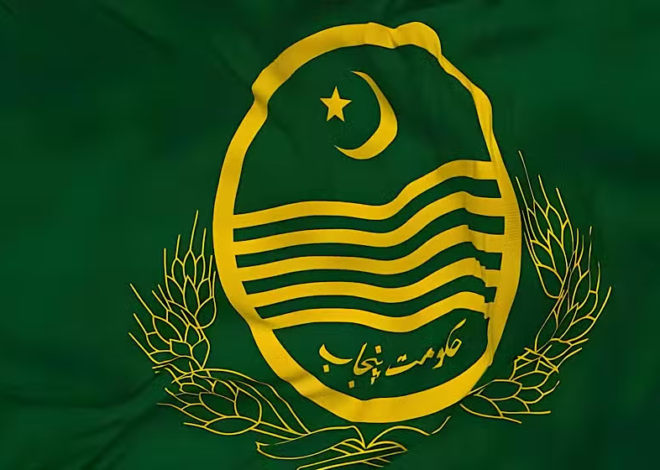
OIC agrees to set up trust fund; launch food security programme for Afghans

ISLAMABAD: A specially convened meeting of the 57 member states of the OIC on Sunday vowed to play a leading role in delivery of humanitarian assistance to the people of war-torn Afghanistan and unanimously agreed on establishing a Humanitarian Trust Fund, launch a Food Security Programme and engage with the World Health Organization for securing vaccines and medical supplies.
The meeting of the 17th Extraordinary Session of the OIC Council of Foreign Ministers held on the initiative of Saudi Arabia and hosted by Pakistan was attended by around 70 delegates from the member states, international aid agencies and special representatives.
The unanimously adopted Joint resolution brings a glimmer of hope for the 22.8 million people – more than half the population of Afghanistan – who face acute food shortage; while 3.2 million children and 700,000 pregnant and lactating women are at a risk of acute malnutrition.
The document adopted after day-long deliberations at the Parliament building also expressed solidarity with the Afghans and reiterated the commitment of the OIC Member States to help bring peace, security, stability, and development to Afghanistan.
The extraordinary meeting was convened as the UN’s estimates warned that 60% of Afghanistan’s 38 million people face “crisis levels of hunger” and that the situation was getting worse every day. The OIC also expressed deep alarm at the deteriorating humanitarian crisis in Afghanistan.
Prime Minister Imran Khan earlier in his keynote address warned; “Unless action is taken immediately, Afghanistan is heading for chaos.”
He said “chaos suits no one” and urged the world to understand the gravity of situation and reach out to the Afghan people who were facing starvation.
The Council of Foreign Ministers also took into account the fact that the United Nations High Commission for Refugees, has pointed that 665,000 people have been newly displaced within Afghanistan between January and September 2021 – in addition to the 2.9 million people already internally displaced by conflict in Afghanistan.
Expressing deep concern over the breakdown of Afghanistan’s health system, disease outbreaks and severe malnutrition, in particular in the face of COVID-19 pandemic, the OIC decided to establish a Humanitarian Trust Fund, under the aegis of the Islamic Development Bank; which would serve as a vehicle to channel humanitarian assistance to Afghanistan including in partnership with other international actors.
The Council of Foreign Ministers decided that the OIC General Secretariat, together with the Islamic Development Bank and Humanitarian Trust Fund, shall commence discussions with the UN system organizations to device a road map for mobilizing actions in relevant fora to unlock the financial and banking channels to resume liquidity and flow of financial and humanitarian assistance. It would also devise a mechanism for the disbursement of urgent and sustained humanitarian assistance to the people of Afghanistan.
In this regard, the Islamic Development Bank was urged to expeditiously operationalize the Humanitarian Trust Fund by the first quarter of 2022. Meanwhile, the meeting called on the OIC Member States, the Islamic Financial Institutions, donors and other international partners to announce pledges to the Humanitarian Trust Fund for Afghanistan as well as to provide humanitarian assistance to Afghanistan.
The meeting expressed deep alarm at the worsening economic situation in Afghanistan, which it pointed was further compounded by the continued freeze of overseas Afghan assets as well as other international assistance, exacerbating the urgent cash-flow problems, including payment of remuneration to public officials, and hindering the provision of essential public and social services to the people of Afghanistan.
The moot, which was also addressed by Foreign Ministers of Saudi Arabia, Turkey, Niger, Jordan, OIC Secretary-General, UN’s Emergency Relief Coordinator, President Islamic Development Bank, warned that an economic meltdown in Afghanistan would lead to a mass exodus of refugees, promote extremism, terrorism, and instability, with dire consequences for regional and international peace and stability.
The Council of Foreign Ministers commended Pakistan and Iran’s hospitality, in hosting millions of Afghan refugees for over four decades. It also pointed that millions of Afghan refugees are already residing in the neighbouring countries and beyond due to the protracted conflict and ensuing economic and social challenges spanning over 40 years.
The meeting stressed upon the need to support Afghanistan in addressing poverty, creating employment opportunities, and provision of essential services to its citizens, in particular food, clean water, quality education, health services.
The OIC while deciding to launch an Afghanistan Food Security Programme, requested the Islamic Organization for Food Security (IOFS) to undertake necessary work in this regard using the capacity of the Organization’s Food Security Reserves, when necessary.
It also urged the OIC Member States, international donors, the UN Funds and Programmes and other international actors to generously contribute to the Afghanistan Food Security Programme.
The meeting reiterated its call on the OIC Secretary-General to engage with donor financial institutions to provide necessary humanitarian and economic assistance to Afghanistan as well as Afghan refugees in neighbouring countries.
An urgent appeal was also made to OIC member States, the international community including the UN system, international organizations, and international financial institutions to continue to provide all possible and necessary recovery, reconstruction, development, financial, educational, technical and material assistance for Afghanistan as policy tools to promote realization and enjoyment of fundamental rights and freedoms by all Afghan citizens.


